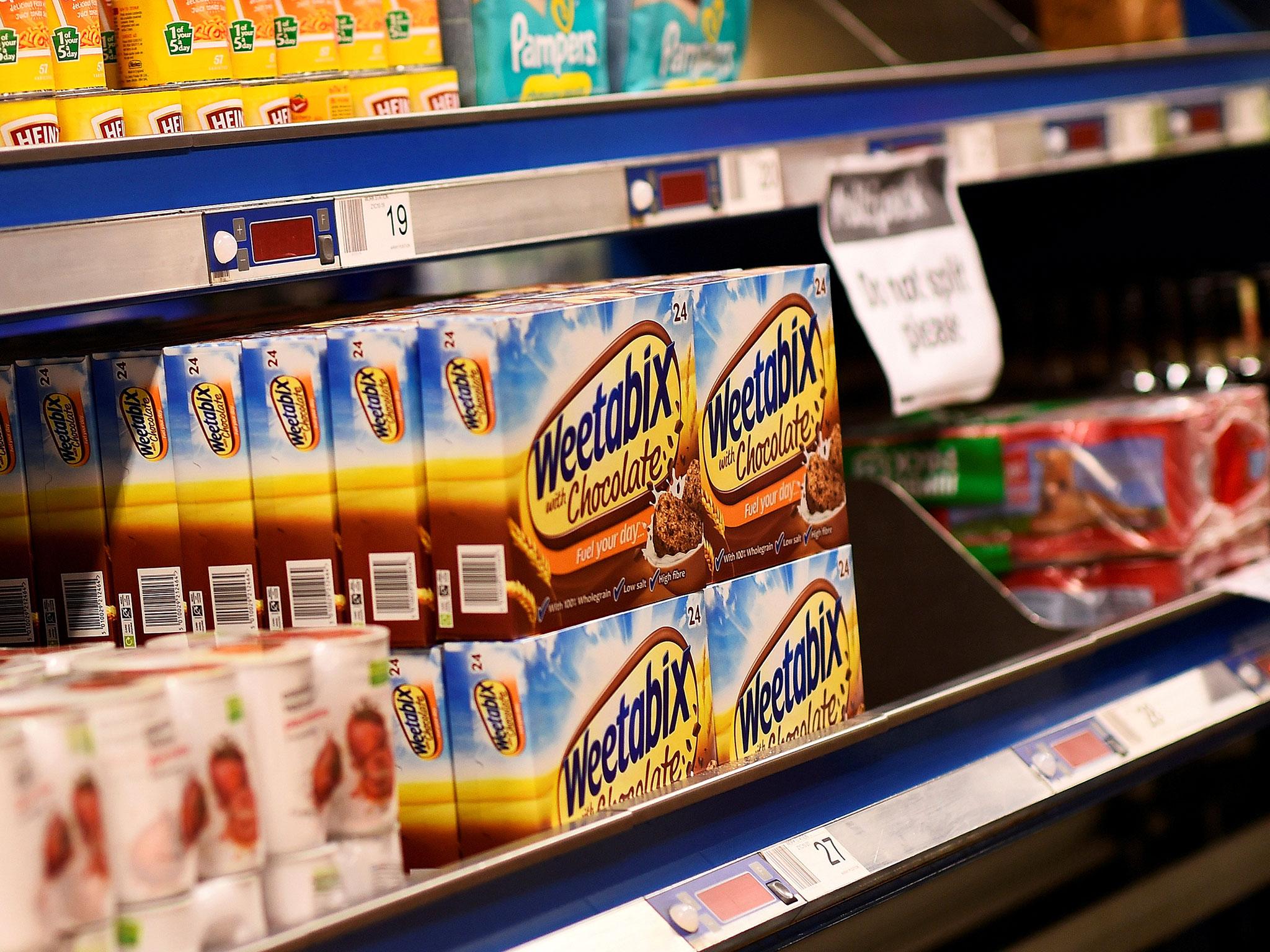Deutsche Bank-Weetabix court case shows how Brexit affects breakfast
Lawyers say Brexit triggered a surge in currency swap disputes

Your support helps us to tell the story
From reproductive rights to climate change to Big Tech, The Independent is on the ground when the story is developing. Whether it's investigating the financials of Elon Musk's pro-Trump PAC or producing our latest documentary, 'The A Word', which shines a light on the American women fighting for reproductive rights, we know how important it is to parse out the facts from the messaging.
At such a critical moment in US history, we need reporters on the ground. Your donation allows us to keep sending journalists to speak to both sides of the story.
The Independent is trusted by Americans across the entire political spectrum. And unlike many other quality news outlets, we choose not to lock Americans out of our reporting and analysis with paywalls. We believe quality journalism should be available to everyone, paid for by those who can afford it.
Your support makes all the difference.In London’s hipster Cereal Killer Cafe, a bowl of mini Weetabix costs more than £4. But in a courthouse across town, the breakfast cereal could end up costing Deutsche Bank a lot more: $118m (£90m).
Bright Food Hong Kong sued the lender in Shanghai, accusing Deutsche Bank of misleading it into buying British pound-to-US dollar currency swaps linked to a stake in Weetabix. The bank filed in May in London to switch the case to British courts.
Companies are increasingly filing lawsuits over the derivatives since last year’s Brexit vote cut the value of the pound, saying they were sold products they didn’t understand and whose risks they couldn’t measure.
Bright Food is accusing Deutsche Bank of “misrepresentations” to convince it to take up the swaps, according to a claim form filed in London.
The bank says the company “fully understood the terms and associated risks of the transactions” and “was capable of assuming, and assumed, the risks” involved.
Bright Food’s swaps ended when it sold a majority stake in Weetabix in July, and the bank forced the payment of an early termination fee of $102.8m, the London court papers say. Bright Food disputed the validity of some transactions, but paid “without any admission of liability.”
Bright Food says in its Shanghai lawsuit that the bank is liable for about $118m for breach of contract or wrongdoing unless the currency swaps are declared invalid or rescinded.
Brexit Changes
Robin Henry, a partner in the banking and financial disputes team at law firm Collyer Bristow, which isn’t involved with the case, said since the June 2016 vote there’s been an “unusual spike” in customers suing banks that sold them currency swaps.
Some customers holding the swaps “were suddenly facing millions of pounds worth of losses” after the British public voted to leave the European Union, he said.
Banks often want to move cases to London courts from other jurisdictions because they have an advantage in the country, Henry said.
“There’s not much leeway in England for claimants who want to say ‘I was badly advised,”’ Henry said.
Bright Food in April agreed to sell Weetabix to Post for about £1.4bn after owning the British breakfast staple for five years, during which it struggled to interest Chinese consumers in cold cereal.
The case is Deutsche Bank and Bright Food Hong Kong.
Bloomberg
Join our commenting forum
Join thought-provoking conversations, follow other Independent readers and see their replies
Comments